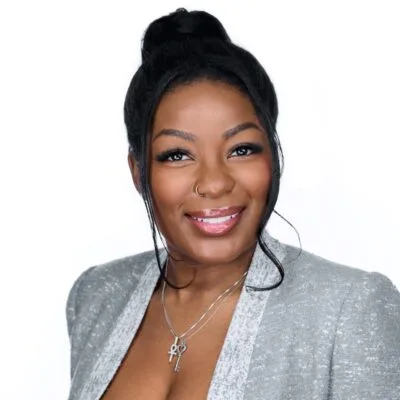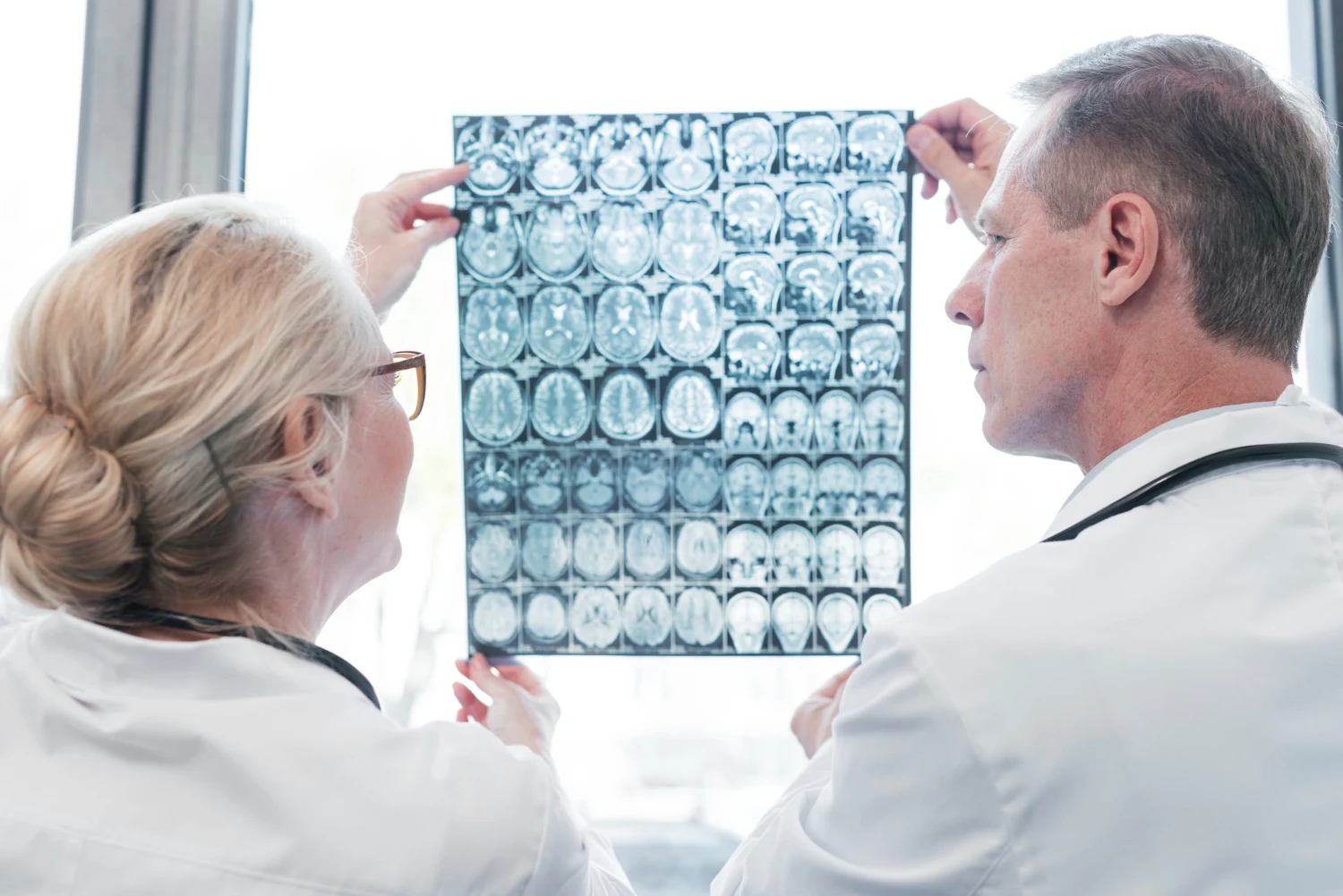What You Need to Know About Borderline Personality Disorder (BPD) and Alcohol, Symptoms, Diagnosis and Treatment
Borderline Personality Disorder (BPD) is when someone has intense feelings and acts on them fast. The feeling are even stronger when they also drink alcohol, and harder to handle. Therefore it’s important to be informed to be able to act upon it most efficiently.

This guide explores essential topics like building a solid support system and knowing when to seek professional help. The goal is to provide the knowledge and resources needed to navigate this challenging landscape and promote well-being.
What is Borderline Personality Disorder (BPD)?
Borderline Personality Disorder (BPD) is a mental health condition characterized by intense emotional instability, impulsive behaviors, and unstable relationships, often rooted in a deep fear of abandonment
Understanding borderline personality disorder (BPD) is important, whether it's for yourself or to support someone you care about going through it.
People with BPD deal with these really strong, rapidly changing emotions constantly. It feels like a never-ending rollercoaster of emotions - the highs are extreme, but the lows feel just as intense. Their reactions are unpredictable and hard to control, causing total emotional chaos.
Maintaining stable relationships for them is like trying to stand up straight during an earthquake. Those with BPD can go from being extremely close to someone to feeling angry or betrayed in an instant, pushing them away. These wild mood shifts confuse friends, family, and partners, putting a lot of strain on keeping long-term connections.
Individuals with BPD struggle with their self-image, what they value, or what goals to set in life. Their interests, jobs, friends, and even sexual identity can shift frequently. This loss of oneself might also be reflected in binge eating, reckless driving, erratic spending, or abusing drugs/alcohol as a way to cope in the moment. While it provides temporary relief, it usually leads to worse problems.
What are common symptoms of BPD?
The main symptoms of people with Borderline Personality Disorder (BPD) are rapid mood swings, unstable self-image, impulsive and risky behaviors, extreme fear of abandonment, intense and volatile relationships, chronic feelings of emptiness, and paranoia or dissociation during stress.
Listed below are 8 Symptoms of BPD.
- Rapid mood swings: Emotions shift quickly from joy to anger or sadness, often without a clear trigger.
- Unstable self-image: Persistent uncertainty about identity, values, or personal direction.
- Impulsive and risky behaviors: Actions like substance abuse, reckless driving, or binge eating.
- Extreme fear of abandonment: Intense sensitivity to real or perceived rejection or separation.
- Intense, unstable relationships: Alternating between idealizing and devaluing others in close relationships.
- Chronic feelings of emptiness: A deep sense that life feels meaningless or emotionally numb.
- Paranoia or dissociation during stress: Feeling suspicious of others or detached from reality when overwhelmed.
What Causes "Splitting" for People with BPD?
"Splitting" happens when someone with borderline personality disorder (BPD) sees things as all good or all bad. There is no middle ground. A few things can cause this black-and-white thinking:
Feeling Left Behind
People with BPD are very afraid of being abandoned or rejected. Even small things, like a friend canceling plans, can feel like abandonment. This extreme fear causes their view to shift to all bad.
Fights and Arguments
Arguments with loved ones can trigger splitting for someone with BPD. During a fight, they may suddenly see the other person as completely bad, even if they viewed them as good before.
Too Much Stress
Having a lot of stress can overwhelm someone with BPD. This high stress causes black-and-white thinking as a way to cope.
Changes in Self-View
Events that challenge how someone sees themselves can cause splitting. Significant life changes like job loss can shift them to an extremely negative self-view.
Intense Feelings
Very strong emotions, whether good or bad, are hard for people with BPD. Splitting helps them deal with feelings that seem too big to handle.
In short, splitting happens when situations feel too emotionally intense or threatening for someone with BPD. The black-and-white thinking helps them cope, even though it is an unhealthy pattern in the long term.
How is BPD Diagnosed?
Borderline Personality Disorder (BPD) is diagnosed through a comprehensive psychological evaluation conducted by a licensed mental health professional such as a psychiatrist, psychologist, or clinical social worker.
Listed below are 5 BPD diagnoses processes.
- Clinical Interview: The clinician discusses your symptoms, emotional patterns, relationships, and personal history in depth.
- DSM-5 Criteria Assessment: To receive a diagnosis, you must meet at least five of the nine criteria outlined in the Diagnostic and Statistical Manual of Mental Disorders (DSM-5). These include emotional instability, impulsivity, fear of abandonment, and more.
- Screening Tools (Optional): Instruments like the MSI-BPD, PDQ-4, or SCID-5-PD may be used to support the diagnosis, though they are not definitive on their own.
- Medical Evaluation: A physical exam and lab tests may be conducted to rule out other medical or psychiatric conditions that could mimic BPD symptoms.
- Collateral Information: With your permission, clinicians may speak with family or close friends to gain additional insight into your behavior and emotional patterns.
Diagnosis is typically made in adulthood, as symptoms in children or teens may change with maturity.
How Can Dual Diagnosis Programs Help with BPD and Alcohol Problems?
There are special treatment programs designed for people dealing with BPD and alcohol addiction.
These programs understand that BPD and alcohol problems often go hand-in-hand, with one issue worsening the other in a vicious cycle. Instead of treating them separately, dual diagnosis care digs deep to uncover the underlying root causes driving both the BPD behaviors and drinking. By tackling everything together, they can help break that cycle for longer-lasting recovery.
The treatment team is stacked with different experts - psychiatrists, therapists, addiction counselors, and more; all collaborating under one roof with a unified strategy.
A major part of treatment is dialectical behavior therapy (DBT), based on cognitive behavior therapy (CBT), which teaches skills to manage your emotions better, control impulsive urges, and improve relationships - huge issues for those with BPD. But DBT also focuses on replacing alcohol with healthier coping mechanisms.
Group therapy plays a big role, too. It provides a supportive community where you can learn from others facing similar struggles and be motivated by their progress. You'll work on building up your emotional regulation abilities, stress management techniques, and support network, all key to preventing relapse down the road.
The professionals emphasize that recovery isn't a short-term thing - it's an ongoing journey. So, these programs don't just discharge you after initial treatment.
How Are BPD and Alcohol Use Connected?
People with BPD feel emotions very strongly, and their emotions change quickly. This is very exhausting. Some people with BPD drink alcohol to try to escape these intense emotions. But drinking only makes BPD symptoms worse over time.
Then, the impulsive tendency that comes with BPD, mixed with alcohol's disinhibiting effects, enables all kinds of risky, reckless behavior when under the influence, such as binge drinking, unsafe sex, and aggressive outbursts. Not only is it putting the person at serious risk, but it also strains relationships and can create legal and financial fallout.
So alcohol use and BPD reinforce each other's worst symptoms in this vicious cycle that can quickly spiral out of control without comprehensive treatment. Managing them together as interconnected issues is becoming crucial.
What Are the Dangers of Combining BPD and Alcohol?
One of the most significant dangers is how alcohol just compounds the already intense emotional volatility of BPD. People with BPD experience emotions in such an extreme, rapidly shifting way to begin with. But layer alcohol on top of that, and those mood swings get straight-up turbocharged.
Then, there’s the impulsivity factor that BPD brings to the table. This disorder is already associated with struggling to rein in impulsive urges and tendencies. Now mix in alcohol, stripping away what little inhibition is left, and acting on those urges in the heat of the moment without thinking becomes so much easier. You're looking at behaviors like binge drinking, risky sexual situations, aggressive outbursts, and reckless driving - all kinds of dangerous, regretful decisions made in the heat of that impulsive moment that you can't take back once you sober up. It just feeds this vicious cycle of impulsive behavior escalating higher and higher.
Adding up, the volatile, unpredictable nature of BPD and alcohol abuse collide strains and fractures relationships massively. The emotional bombshells and the impulsive actions inevitably lead to constant conflicts, misunderstandings, and drawn-out blowup arguments with family, friends, and partners.
When these two forces are combined, the relationship fallout and alienation are not avoided. And for someone with BPD's inherent fear of abandonment? Those fractured bonds and alienated loved ones intensify that distress and fear of being left even more.
Beyond the emotional turmoil, the physical toll of heavy drinking, on top of the psychological challenges of BPD, can start wrecking your overall health, too. Long-term alcohol abuse wears your body down while worsening mental health issues like depression and anxiety. It becomes an unsustainable downward spiral healthwise.
How is BPD Treated?
Borderline Personality Disorder (BPD) is primarily treated through treatment modalities such as psychotherapy, with medications and hospitalization used as supportive options depending on symptom severity.
Listed below are treatment methods of BPD.
- Psychotherapy
- Medications
- Hospitalization
- Creative Therapy
- Supportive care
1. Psychotherapy (Talk Therapy)
This is the core treatment for BPD and includes several evidence-based approaches:
- Dialectical Behavior Therapy (DBT): Teaches emotional regulation, distress tolerance, and interpersonal effectiveness through individual and group session.
- Cognitive Behavioral Therapy (CBT): Helps identify and change distorted thinking patterns and behaviors.
- Mentalization-Based Therapy (MBT): Improves the ability to understand one's own and others' mental states before reacting.
- Schema-Focused Therapy: Targets deep-rooted emotional patterns from childhood, such as abandonment or impulsivity.
- Transference-Focused Psychotherapy (TFP): Uses the therapist-patient relationship to explore and reshape interpersonal dynamics.
- STEPPS Program: A 20-week group-based therapy involving family and caregivers to build emotional predictability and problem-solving skills.
2. Medications
There are no FDA-approved medications specifically for BPD, but doctors may prescribe:
- Antidepressants for mood symptoms
- Antipsychotics for distorted thinking or aggression
- Mood stabilizers for emotional instability
3. Hospitalization
Short-term psychiatric hospitalization may be recommended during crises, especially if there's risk of self-harm or suicidal behavior.
4. Creative Therapies
Art, music, dance, and drama therapies can help express emotions nonverbally and are often used alongside talk therapy.
5. Supportive Care
- Therapeutic communities offer structured environments for long-term emotional growth.
- Family education and involvement can improve outcomes and reduce stigma.
Treatment is most effective when tailored to the individual and delivered by professionals experienced in personality disorders. For anyone caught in the grips of BPD and alcohol use, professional help that tackles both issues in tandem is essential. With the right interventions and support system, finding calmer waters is possible. However, recognizing that you need specialized help is the first step.
What Strategies Work Best for Managing BPD and Alcohol Use?
Now, let’s talk about practical steps to manage BPD and reduce alcohol use:
|
Category |
Description |
|
Therapy |
Dialectical Behavior Therapy (DBT): Focuses on emotional regulation, distress tolerance, and interpersonal effectiveness. |
|
Therapy |
Cognitive Behavioral Therapy (CBT): Helps change negative thought patterns and behaviors. |
|
Medication |
Medications to manage symptoms. |
|
Support Groups |
Groups for BPD can provide community and understanding. |
|
Healthy Coping Mechanisms |
Exercise: Manage stress and improve mood. |
|
Healthy Coping Mechanisms |
Mindfulness and Meditation: Manage emotions. |
|
Routine |
Includes structure and stability. |
|
Limit Triggers |
Identify and avoid triggers. |
|
Friends and Family |
Educate them for better support. |
|
Professional Support |
Maintain regular appointments. |
|
Online Communities |
Share experiences and tips with others. |
How Can Friends and Family Support Someone with BPD?
Friends and family can support someone with Borderline Personality Disorder (BPD) by being patient, validating their emotions, encouraging treatment, and maintaining clear, compassionate boundaries.
Listed below are ways family can support a BPD patient.
Get Educated: Take the time to understand what BPD is and how alcohol factors into that whirlwind. The more knowledge you've got on what they're dealing with, the better you'll be able to have their back.
Stay Patient: Recovery isn't a straight shot, it's a winding road with plenty of setbacks and tough patches. Having unlimited patience and keeping judgment at bay during the rocky moments is crucial. Don't get discouraged.
Encourage Outside Help: You can't force it, but keep that gentle nudge going to encourage them to seek out or stick with therapy and any medical support they need. Professional help is vital.
Know Your Limits: As much as you want to be there for them, you've gotta safeguard your mental health, too. Setting clear boundaries for yourself is a must to avoid burning out. There may also be times when the situation requires more urgent intervention.
Suicidal Thoughts/Attempts: If your loved one is voicing thoughts about ending their life or attempting suicide, don't hesitate to call emergency services or a crisis line immediately. Their safety becomes the top priority.
Severe Drunkenness: If they're dangerously intoxicated and unresponsive, it may warrant calling 911 to get them emergency medical care. Use your best judgment.
When you've reached your limits, you must recognize them and prioritize what is most important, such as seeking help or taking a break.
Why Do They Say People with BPD Have a Life Expectancy of 27 Years?
That claim is a misinterpretation of research data, not an actual statistic. The number 27 often comes from studies where the average age of participants was 27, not their life expectancy
The table below shows facts and common misconceptions of BPD life expectancy.
Category |
Description |
Truth vs. Myth |
|
Misconception |
The life expectancy for people with BPD is 27. |
Myth |
|
Risk Factors |
Why some with BPD may have a lower life expectancy. |
These can be addressed with proper treatment. |
|
Risk Factors (Examples) |
Suicidal thoughts and behaviors, self-harm |
Treatment can significantly reduce these risks. |
|
Positive Outlook |
Living a long and healthy life with BPD. |
Possible with support and care. |
|
Triggers |
Understand what can worsen BPD symptoms. |
Recognizing triggers can help manage them. |
|
Triggers (Examples) |
Fear of abandonment |
Learning coping mechanisms helps manage triggers. |
|
Call to Action |
Learn more, get support, reduce stigma. |
Resources available for individuals with BPD and their loved ones. |



